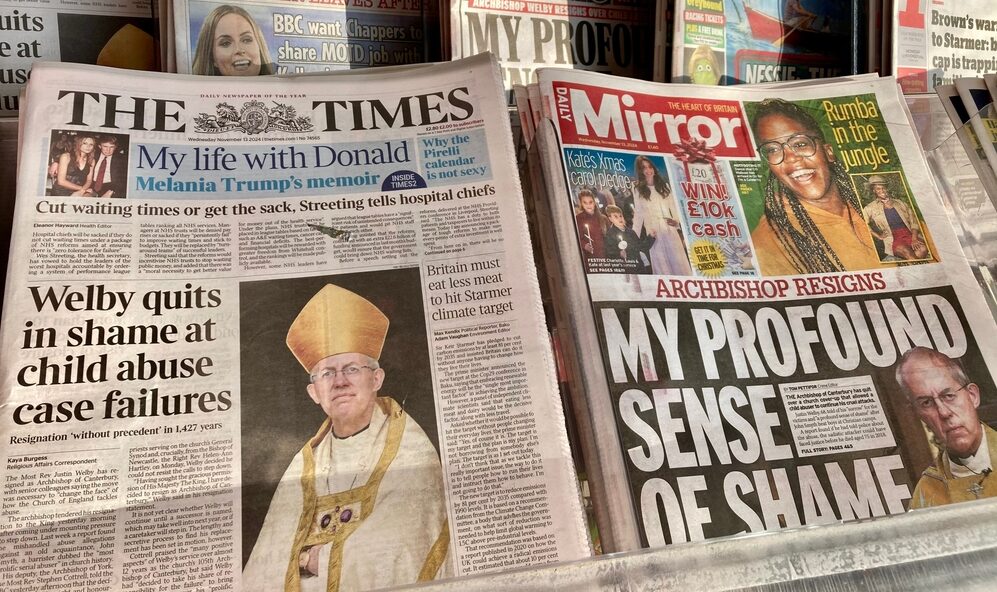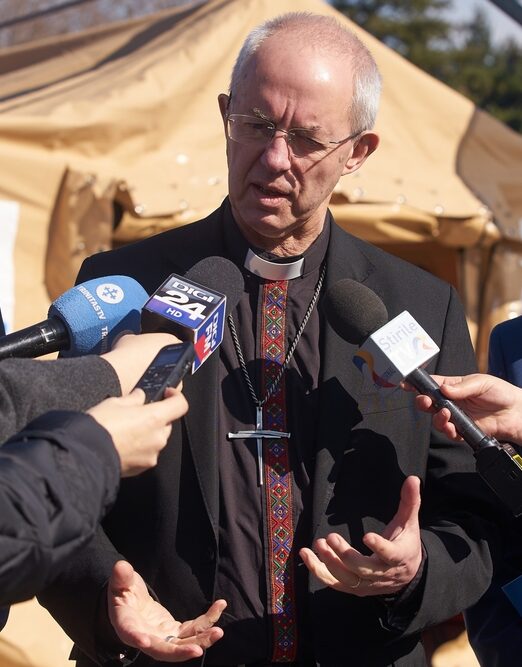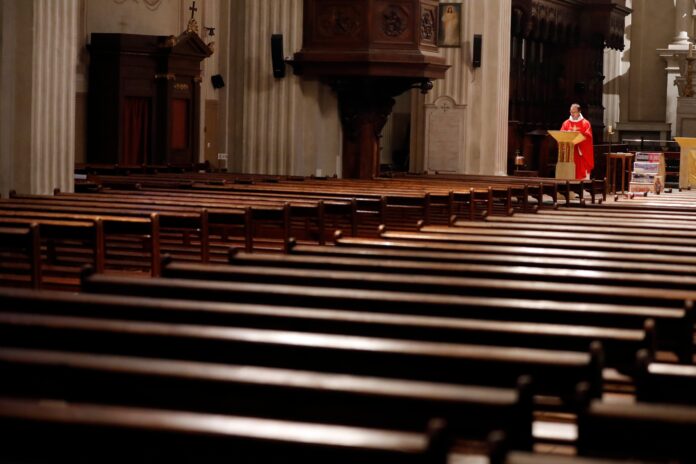A new YouGov poll has revealed that the Church of England is largely irrelevant to Britons, while half the population believes it should be totally disestablished from the state.
The poll comes amid a major child abuse scandal and the rapid rise of atheism and a secular identity in the UK.
This is happening while rival religions, especially the world’s largest and fastest growing religion Islam, continue a healthy growth trajectory across England and Wales.
The recent YouGov poll raises serious concerns among panic stricken British nationalists for the future of the CofE, where regular attendance has been in rapid free fall for decades.
The survey was carried out before the recent furore over the Church’s cover-up of the John Smyth child abuse scandal, which forced the resignation of the Archbishop of Canterbury Justin Welby last week.
The research found that 39 per cent of the public had an unfavourable opinion of the Church, with just 32 percent holding a favourable view.
Only a dismal one percent of those questioned said the Church had “a great deal of influence” over the way most people in Britain lived.
Subscribe to our newsletter and stay updated on the latest news and updates from around the Muslim world!
Some 12 percent said it had “a fair amount of influence” and 53 percent said it had “not very much influence.”
A fifth – 20 percent – of the 2,177 adults questioned said it had “no influence at all.”
Empty pews
Attendances at CofE Sunday services have fallen steadily each year for several decades even before churches closed during the COVID pandemic.
Numbers appeared to recover as churches reopened after lockdown, but figures for 2023 showed 170,000 fewer worshippers each week compared with 2019, falling from 854,000 to 685,000.
The YouGov poll also asked if the Church should be disestablished from the State and no longer England’s “official faith.”

Fifty percent said the Church should no longer be the established religion, compared to just 21 percent who wanted it to remain linked to the state.
In England, the Church of England is the established State Church, with the Monarch serving as its supreme governor. While the Church of Scotland is the official religion of Scotland.
If the Church were to be disestablished, the King would no longer be the automatic head of the Church, bishops would not sit in the House of Lords and it would have equal footing with other faiths in terms of state funding and involvement in government.
Although the UK does not have a single state religion, it does boast established churches in some countries. These Churches are granted special privileges, such as additional state funding or automatic seats in the House of Lords.
Historic abuse scandal
On November 12, Justin Welby resigned as Archbishop of Canterbury following criticism of his handling of a child abuse scandal which rocked the CoE, with an independent review finding that a child abuser might have been brought to justice had Welby formally reported the issue to the police.
About 130 boys are believed to have been victims of John Smyth, a powerful barrister who died in 2018.

Smyth, who ran Christian summer camps in the 1970s and 1980s, committed physical, psychological and sexual abuse against more than 100 boys and young men in the UK, Zimbabwe and possibly in South Africa.
The independent Makin review into the abuse concluded Smyth could have been brought to justice had the Archbishop formally reported it to police a decade ago.
Welby said his decision, which came five days after the report was published, was “in the best interests of the Church of England, which I dearly love and which I have been honoured to serve.”
YouGov polling the day after his resignation shows that Britons overwhelmingly think the Archbishop was right to resign, with 62% saying so compared to only 4% who think he should have remained in place.
The rise of Islam
Meanwhile, the United Kingdom has seen rapid growth in the Muslim population, according to a 10-yearly census carried out in 2021.
The Muslim population, which stood at 3.9 million or 6.5 percent of the population, increased from 4.9 percent, according to the Office for National Statistics.
The next most common responses were Hindu (1 million) and Sikh (524,000), while Buddhists overtook Jewish people (273,000 to 271,000).
For the first time, fewer than half of people in England and Wales described themselves as Christian.
The census showed “no religion” was the second most common response after Christian, further emphasising the dire state of the Christian faith in the UK.
In a recent interview, right-wing MP Nigel Farage of Reform UK addressed the idea that Islam would become a major UK religion.
“We have a Muslim population in Britain growing by about 75 percent every ten years. That’s just where we are. If we politically alienate the whole of Islam, we will lose. We will lose. By 2050, goodness knows what kind of a terrible state we will be in.”

The main reason for the growth of Islam in Britain is population increases, however, experts in the field of daw’ah inform 5Pillars that appetite for conversion to Islam is as high as ever.
In January 2024, Imam Shakeel Begg of Lewisham Islamic Centre told 5Pillars that over the past two decades he has overseen approximately thirty to forty thousand Shahahdas.
Elsewhere, British churches which have become abandoned or dilapidated are being bought by Muslims and converted into new mosques.
St John the Evangelist church in Hanley, Stoke-on-Trent, was recently bought by a businessman who applied for planning permission to turn the neglected building into a masjid.
Although the plans were approved by Stoke-on-Trent council the CofE vetoed the move, sparking a battle for the future of the failed church.
When a congregation dwindles or money for repairs runs out, CofE churches are often sold and go on to become houses, flats, shops, restaurants or community centres.
And vacant buildings used by other Christian denominations, such as Methodist chapels, are sometimes turned into mosques.






















